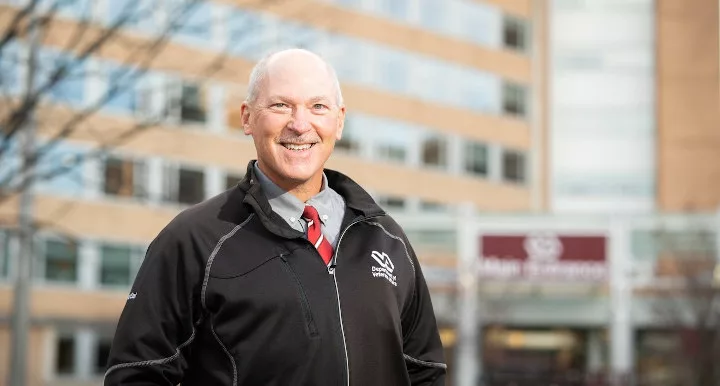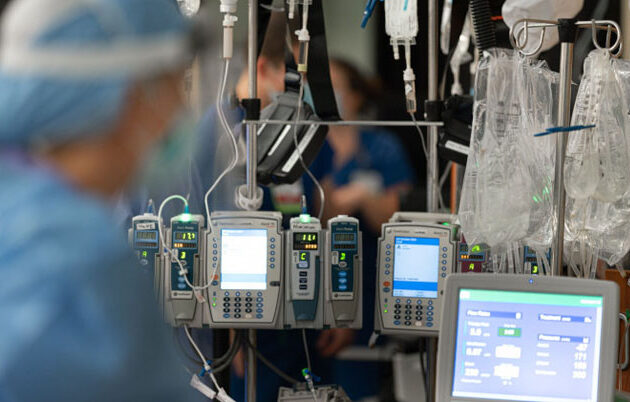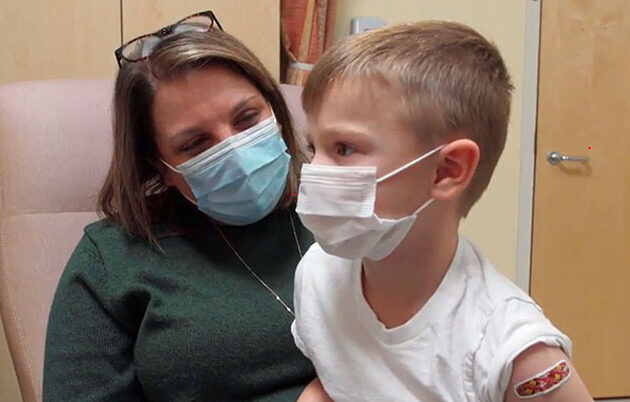Early in the COVID-19 pandemic, he was tapped for his expertise in immunology to serve as medical incident commander for the VA Great Lakes Region. He developed policies for infection control, testing, and patient triaging for all VA hospitals in the region. He also wrote the first draft of the plan that was used to reopen VA system hospitals across the country.
In recognition of these efforts and his decades of service, he received the prestigious Veterans Health Administration John D. Chase Award for Executive Excellence in Health Care in 2020.
In observance of Veterans Day, we sat down with Bridges to discuss the importance of veterans’ health and the connections between the Madison VA and School of Medicine and Public Health.
Q: How would you summarize the relationship between the Madison VA and the School of Medicine and Public Health?
Bridges: They are extremely interconnected. You can even go back to our namesake Dr. William S. Middleton. He was dean of the medical school for 20 years and then appointed by President Dwight Eisenhower as chief medical director for the Department of Veterans Affairs in 1955. He is one of the grandfathers that created VA hospitals in affiliation with medical schools.
We are a part of his vision and have a long-term relationship with the school for education, training, and research. Many UW School of Medicine and Public Health clinical professionals and learners serve patients at the Madison VA, striving to provide the best care possible to veterans.
Q: For someone interested in working with veterans as a career, why is the VA a great place to work and the school a great place to train?
Bridges: There are several angles to this. First, of people that end up being doctors in VA hospitals, 90% of them trained at medical schools affiliated with VA hospitals. Schools like UW are a great source of recruitment for the VA, and the same can be said for nursing schools.
We also have very high-level clinical programs. We have nationally recognized programs in transplant, epilepsy, geriatric research, cancer, and more. We are one of the most complex VAs in the country, and veterans travel from all over the United States to receive care here. In addition, we fund training positions for doctors and nurses. We support a lot of physicians to come here.
Finally, the VA has its own research funding arm and strong track record of incredible research and discoveries. Nasia Safdar, MD, PhD, serves as our associate chief of staff for research and leads all of our research programs. She has been instrumental in bringing additional research to our hospital.
When you combine all of these elements, it created an outstanding learning environment.
Q: As a veteran yourself, why are you passionate about your role at the VA serving veterans?
Bridges: This is a mission-based organization. The people that work here are dedicated to the mission of caring for those who served our country. It’s a passion and it’s heartfelt. It creates an environment of compassion. I knew early on when I came here in 1984 that I wanted to work in this hospital. The legacy of Dr. Middleton creates a culture here of high-level quality care, research, and education.
Q: Why are veterans an important part of the health care workforce?
Bridges: Veterans in general have a very high level of responsibility. They have a strong work ethic and as a result of that are incredibly valuable employees. I think it’s important for all businesses to support our nation’s veterans as they reintegrate back into society after their service.
The UW School of Medicine and Public Health is committed to being a diverse, equitable, inclusive and anti-racist workplace and is an Equal Employment Opportunity, Affirmative Action employer. Applications from Black, Indigenous and People of Color (BIPOC) individuals, LGBTQ+ and non-binary identities, women, persons with disabilities, military service members and veterans are strongly encouraged. Find out about employment opportunities with the school.


